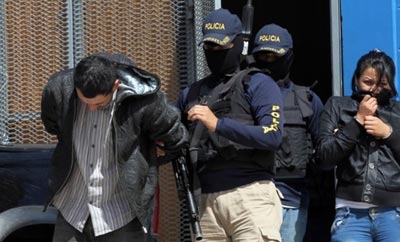Police in Honduras say moves to block cell phone signals in prisons have weakened the control of the incarcerated heads of extortion gangs, leading to increased violence as gangs fragment and mid-level operators compete for control of the market.
Officials from the anti-extortion unit of the Honduran police told El Heraldo that many gang leaders had lost control of their subordinates on the outside as they had been isolated by the shutting down of phone signals in jails.
According to the police, lower-level gang members have been running their own unauthorized extortion operations and withholding money from leaders. This has led to the fragmentation of some of the main extortion gangs, as well as revenge killings over unpaid money.
An additional problem is that gang members on the outside tend to be much younger, less experienced and more prone to making mistakes than the leaders, say police.
The main three gangs behind extortion in Honduras were the Mara Salvatrucha (MS13), Barrio 18 and Los Chirizos. However, in recent months Los Chirizos have fragmented and splinter groups are competing over what was their territory.
InSight Crime Analysis
After Honduran authorities began blocking cell phone signals in February, the government claimed reported extortions fell by 75 percent, illustrating the extent to which prisoners had been controlling this crime in Honduras. However, these extortion operations also require personnel on the outside to collect payments and carry out attacks against those that do not pay.
SEE ALSO: Coverage of Extortion
For this reason, the isolation of imprisoned leaders was always likely to have secondary effects. Those on the outside have seen the opportunity to increase their own power and share of the profits, sparking violence as leaders try to retain control and splinter groups fight for a share of the organization’s territory.
This pattern is common in all areas of organized crime. Decapitation policies that remove top leaders often lead to an increase in violence and chaos as mid-level operatives fight over criminal revenues once controlled by a unified organization.

